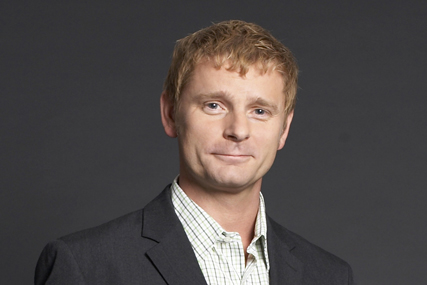There is seemingly endless debate among government, regulators and the industry about the 'future of broadcasting'. Arguably, though, broadcasting is the least important thing broadcasters do. To figure out their place in the digital world, it helps to look at FMCGs.
The marketing of FMCGs is often regarded as a specialism, with practitioners needing to master distribution, pricing, promotion and product. Their toughest challenge is dealing with the supermarkets, which ruthlessly exploit their negotiating power - charging for shelf space, imposing promotional discounts and delisting brands that don't play ball.
Broadcasters have not actually transmitted their programmes for a very long time. In the old days, people just bought a TV and pushed the buttons on the front of it to watch content directly from the BBC, ITV and Channel 4. Now more than half of UK homes watch TV via Virgin Media, Sky or BT Vision, and the old terrestrial channels are starting to look like P&G.
The platforms - Virgin Media, etc - control the relationship with viewers; and it is a billing relationship the broadcasters never had. The platforms control the shelf space through the electronic programme guide (EPG), and some know exactly what was watched and when. Moreover, Sky has own-label products as well - channels that fight for ad revenue with ITV and Channel 4.
Broadcasters have been forced down the value chain, and their role has evolved. They scout, identify and commission content, using scheduling and marketing to build content brands.
Their investment in channel brands, however, is not evolving at the same rate. The EPG pushes content forward and lessens the impact of the channels showing it. Just as the Tesco website shows Pampers and the supermarket's own-label nappies next to each other in plain text, Sky's EPG doesn't bother with all those expensively designed channel logos.
EPG users are often deciding not what channel to watch, but what programme. The platforms are currently wrestling with the conundrum of how to present on-demand content, but it is likely that they will soon push it alongside standard programmes in a more effective way. At the same time, platform owners will surely exploit their new-found power, adopting some of the supermarkets' practices.
Want to launch a series? You'll need to advertise on the EPG. Want your on-demand content promoted alongside your broadcast programmes? That'll cost.
This will only put more pressure on broadcasters' sometimes haphazard channel branding in the rush to multichannel. Heinz might have some relevance to consumers, but Unilever doesn't. Both companies are comfortable with this because they are clear about the role of these brands: one is for consumers, the other for investors and the trade.
Broadcasters, though, lack this clarity, and as the platform business expands with YouTube, Google, Apple, Xbox and Samsung all looking to control the gateway, channel brands are going to have to discover and express what they are for.
Managing that portfolio of content brands, investing in NPD, negotiating the consumer distribution minefield - TV is the fastest-moving FMCG in the category, and the broadcasters must decide soon whether they are a Heinz or a Unilever.
Andrew Walmsley is a digital pluralist
30 SECONDS ON ... SAMSUNG SMART TV
- Samsung Smart TVs can be connected to the internet so users can watch programmes and browse the web from the same screen.
- Apps allow people to stream films online from Netflix and Blockbuster, as well as TV shows hosted by Hulu, videos from YouTube and sports information and news provided by ESPN.
- This online content includes on-demand videos stored in online libraries, as well as live broadcasts.
- The apps also allow consumers to stream music from free internet radio service Pandora, and view updates to their Facebook and Twitter accounts.
- Other features include real-time gaming, where users can challenge other Smart TV owners to poker bouts and other games.
- The Samsung App Store hosts appropriate apps that can be downloaded to the TV, some of which are free.
- The manufacturer claims that the product makes TV 'more than just something to watch - it becomes an interactive entertainment system'.


